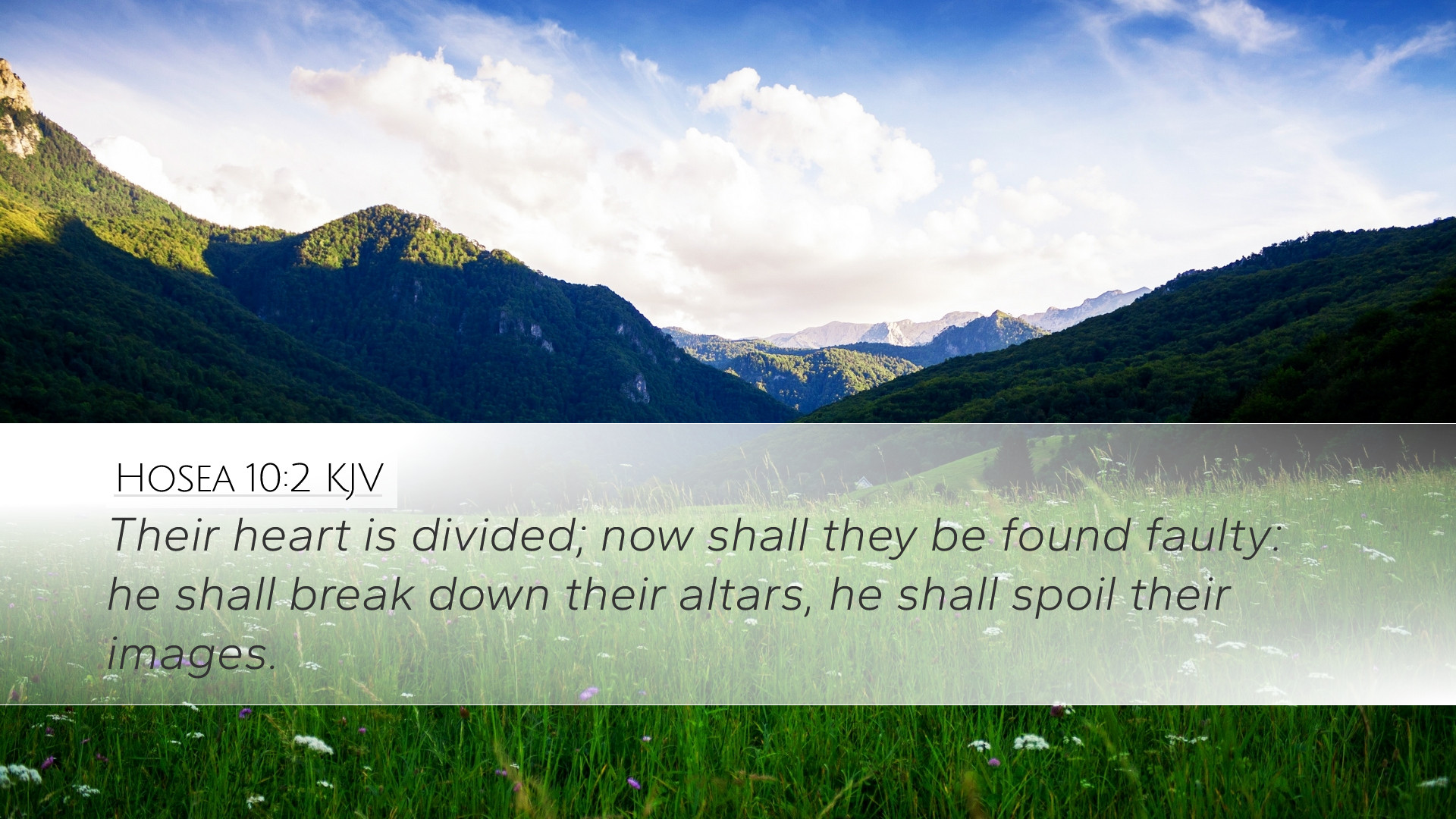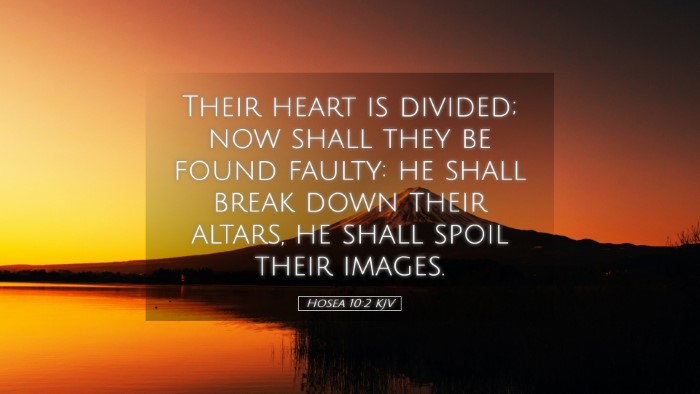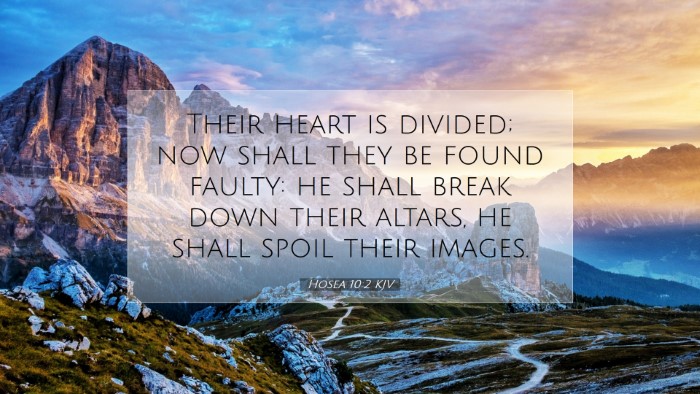Old Testament
Genesis Exodus Leviticus Numbers Deuteronomy Joshua Judges Ruth 1 Samuel 2 Samuel 1 Kings 2 Kings 1 Chronicles 2 Chronicles Ezra Nehemiah Esther Job Psalms Proverbs Ecclesiastes Song of Solomon Isaiah Jeremiah Lamentations Ezekiel Daniel Hosea Joel Amos Obadiah Jonah Micah Nahum Habakkuk Zephaniah Haggai Zechariah MalachiHosea 10:2
Hosea 10:2 KJV
Their heart is divided; now shall they be found faulty: he shall break down their altars, he shall spoil their images.
Hosea 10:2 Bible Commentary
Hosea 10:2 states, "Their heart is divided; now shall they be found faulty: he shall break down their altars, he shall spoil their images." This verse serves as a solemn warning about the consequences of divided loyalty and the importance of a wholly devoted heart towards God.
Overview
The prophet Hosea speaks to a nation enamored with idolatry, highlighting the spiritual condition of Israel. Hosea's ministry is marked by a call to repentance, emphasizing the disorder of the heart and the implications it brings to their covenantal relationship with God.
Exegesis and Commentary Insight
Combining insights from various public domain commentaries, we can glean deeper theological meanings from this verse.
-
Matthew Henry:
Henry notes that a "divided heart" symbolizes a lack of single-minded devotion to God. The Israelites’ spirituality was tainted by their engagement in idolatry and sin. He emphasizes that God desires undivided loyalty and that the fragmentation of their affections leads to destruction and divine judgment.
-
Albert Barnes:
Barnes expands on the idea of being "found faulty." He explains that this reflects the consequences of broken commitments, wherein people are held accountable for their unfaithfulness. Their altars of false worship will be dismantled, and their images, symbols of their disobedience, will be rendered useless. Barnes urges a recognition of the futility in idolatry.
-
Adam Clarke:
Clarke highlights the agricultural metaphors used in the surrounding verses, noting that as a crop bears fruit, so too must a heart yield fidelity to God. He emphasizes the inevitability of divine intervention when a nation turns away from its Lord, urging that reform must begin with the inner life of individuals.
Theological Themes
Several core theological themes emerge from Hosea 10:2:
-
Divided Loyalties:
The issue of a "divided heart" reflects the broader human condition where loyalty is often split between various desires—whether they are material wealth, social acceptance, or spiritual allegiance. This is a reminder that God's people must seek to unify their hearts in devotion.
-
Judgment and Restoration:
The verse foreshadows the impending judgment on Israel. Their altars and idols, symbols of their rebellion, will be destroyed. Yet, this theme is also paired with hope for restoration should the people return to true worship.
-
The Nature of Idolatry:
Idolatry is not merely the worship of physical images; it represents any substitute for God in a person's life. The warnings in this verse challenge readers to evaluate what occupies the throne of their hearts—financial success, relationships, or self-fulfillment.
Application for Today's Believers
The implications of Hosea 10:2 resonate profoundly with modern audiences:
-
Self-Reflection:
Believers are encouraged to examine their hearts and identify areas of divided loyalty. What idols exist in their lives that compete for their affections toward Christ?
-
Call to Repentance:
This verse serves as a clarion call for repentance, urging individuals and communities to realign with God truly. Genuine worship is not merely about rituals but about the condition of the heart.
-
Unity in the Body of Christ:
Churches today must work towards unity, recognizing that division can hinder their witness. A collective, undivided heart toward Christ can lead to powerful movements of faith.
Conclusion
Hosea 10:2 serves as both a stark warning and a profound invitation to examine the state of our hearts. With insights from esteemed commentators like Matthew Henry, Albert Barnes, and Adam Clarke, we are called to a deeper understanding of God’s expectations for our loyalty. As we strive to cultivate an undivided heart, we open ourselves to the fullness of a relationship with our Creator—a relationship marked by genuine worship, obedience, and restoration.


